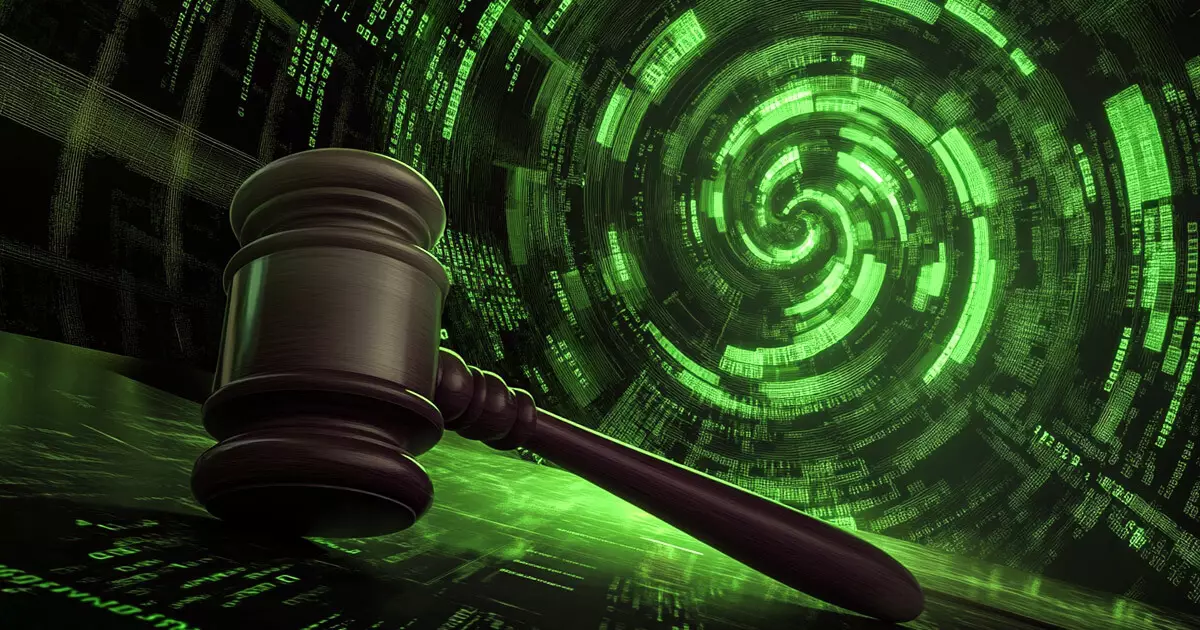The recent ruling by U.S. District Judge Katherine Polk Failla has sent shockwaves through the cryptocurrency community, particularly affecting protocols like Tornado Cash. The judicial decision unequivocally stated that software code, even when used in decentralized finance (DeFi) applications, does not receive First Amendment protection as a form of free speech. This ruling, which emerged from the Southern District of New York on September 26, paves the way for a potentially transformative approach to the regulation of crypto protocols, treating them as money transmitters irrespective of developer control over the transmitted funds.
At the core of this case lies the argument put forth by Tornado Cash developer Roman Storm, who asserted that his role in the development and implementation of Tornado Cash could be shielded under the guise of free speech. Storm faces serious allegations including money laundering and operating an unlicensed money-transmitting business. His defense hinged on the idea that writing code is analogous to expressing an opinion or an idea; hence, it should be protected. However, Judge Failla dismissed this notion, leading to a landmark ruling that changes the landscape for software developers in the blockchain sector.
What’s particularly striking about this ruling is its interpretation of the Bank Secrecy Act (BSA). The court determined that developers of crypto protocols can be held liable under this act even if they do not directly manage the funds being transmitted. This precedent suggests that merely facilitating money transactions—whether through a decentralized protocol like Tornado Cash or otherwise—can subject developers to the same legal responsibilities as traditional money transmitters.
As the ruling resonates throughout the crypto industry, it raises critical questions about the future of similar protocols, including Samourai Wallet, already under scrutiny by U.S. prosecutors. The court’s stance may redefine how the law interprets decentralized applications, challenging the existing narratives about autonomy and control in blockchain technology. As cryptocurrency continues to intersect with traditional finance, the implications of this ruling could lead to an increased regulatory burden on developers.
Critics of the ruling, including high-ranking legal officials from organizations like the DeFi Education Fund, view it as a dangerous threat to innovation and freedom in software development. Amanda Tuminelli, chief legal officer at the DeFi Education Fund, labeled the decision as a potential game-changer, which might shift the development landscape in ways that exacerbate risks for software creators. Furthermore, Jake Chervinsky, chief legal officer of Variant, vocally condemned the ruling as an attack on the free speech rights of developers, fearing it sets a precarious precedent that undermines fundamental principles of innovation.
The case against Storm is tentatively scheduled to begin on December 2, 2023, and will likely become a focal point for further discussion on developer liability in the crypto space. With the outcome anticipated to reverberate across the industry, many foresee an uptick in regulatory scrutiny targeting crypto developers. The ruling could inappropriately categorize decentralized protocols as traditional financial entities, neglecting the unique characteristics of blockchain technology.
Moreover, as the crypto industry grapples with evolving regulatory landscapes, this ruling may influence how existing laws apply to emerging technologies. As different jurisdictions attempt to reckon with the influx of blockchain-related activities, the implications of Judge Failla’s decision might be felt well beyond U.S. borders, leading to broader conversations about the role of developers and the nature of decentralized finance.
The recent ruling surrounding Tornado Cash highlights the precarious position of software developers in the burgeoning world of cryptocurrencies. By expressly delineating the boundaries of free speech as it pertains to code, the court has opened the door for a wave of legal scrutiny that could significantly alter the operational landscape for developers. As the case against Roman Storm proceeds, the attention it garners may catalyze critical changes in how the industry interacts with regulators and navigates the complexities of law in a rapidly advancing technological era.

